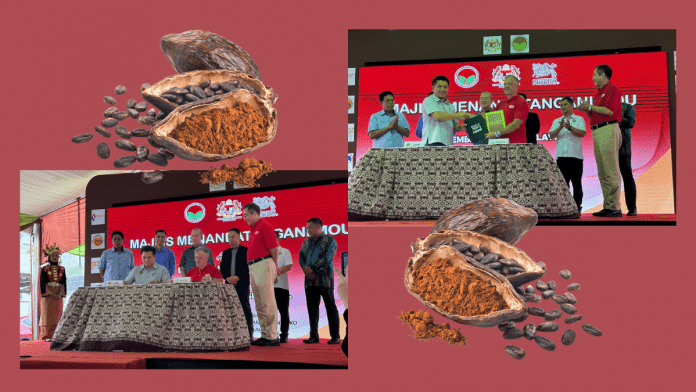News in brief: Nestlé Malaysia and the Malaysian Cocoa Board have signed an MoU to promote sustainable cocoa sourcing and regenerative agriculture practices among local farmers. This initiative aims to improve cocoa production quality, protect soil, and create additional income sources for farmers while fostering environmental sustainability.
Nestlé Malaysia and the Malaysian Cocoa Board (MCB) have signed a memorandum of understanding (MoU) to promote sustainable and responsible cocoa sourcing. The agreement aims to help farmers adopt regenerative agriculture practices.
In a statement, the food giant announced the Nestlé Farmer Connect Responsible Cocoa Sourcing (NFCRS) program which will support local farmers in adopting regenerative agriculture practices. It will be a part of the implementation of the Nestle Borneo Cocoa Initiative (NBCI).
The NBCI, under the 2009 Nestlé Cocoa Plan Initiative, aims to create a responsible cocoa supply chain that improves the livelihoods of farming communities, eliminates child labor, and provides transparency and traceability, while also improving crop yields and quality.
The organisation says that this move will help protect the soil, improve yields, and elevate the quality of local cocoa production over time. Additionally, Nestlé will also provide technical expertise and training to the cocoa board members and participating farmers in adopting regenerative agriculture techniques like agroforestry.
The techniques will be compatible with compatible crops such as palm oil or rubber trees, or intercropping with Durian, Petai, or other commercially viable fruits and vegetables. Generally, the initiative is expected to create additional sources of income for the farmers.
Datuk Ramle Haji Kasin, Director General of the MCB, said the collaboration with Nestlé Malaysia is a major step forward in the board’s quest for sustainable cocoa farming. He added that the company’s extensive experience and resources, combined with the board’s network and industry expertise, will undoubtedly have a positive impact on local farmers and the environment.
Together, the two organisations aim to establish a model that promotes economic growth through sustainable practices.



